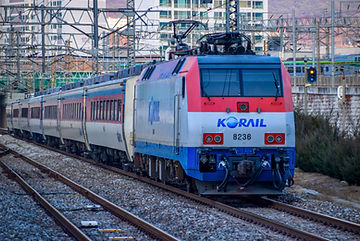Railway Medicals

Occupational health services play a crucial role in the railway industry, where employee fitness and safety are paramount. Railway medicals are specialised health assessments designed to ensure that railway employees meet the necessary health standards to perform their duties safely and effectively. These medicals help in identifying any health issues that might impair an employee's ability to work, thereby preventing accidents and promoting a safe working environment.
Key Components of Railway Medicals
-
Initial Health Screening
-
Medical History Review: Detailed examination of the employee's medical history, including past illnesses, surgeries, and chronic conditions.
-
General Physical Examination: Comprehensive physical assessment to check overall health status and identify any immediate concerns.
-
-
Vision Tests
-
Visual Acuity: Tests to ensure employees have the required level of vision for safety-critical tasks.
-
Color Vision: Testing for color blindness, which is essential for tasks involving signal recognition and safety warnings.
-
Peripheral Vision: Assessment of the field of vision to ensure no limitations that could impact safety.
-
-
Hearing Tests (Audiometry)
-
Baseline Hearing Assessment: Initial test to establish hearing capabilities.
-
Periodic Testing: Regular follow-ups to detect any hearing loss over time, ensuring employees can hear important signals and communications clearly.
-
-
Cardiovascular Assessment
-
Blood Pressure Monitoring: Regular checks to detect hypertension or other cardiovascular issues.
-
Electrocardiogram (ECG): Assessment of heart function and detection of any abnormalities that could impair work performance.
-
Stress Test: Evaluation of heart performance under physical stress, particularly important for employees in physically demanding roles.
-
-
Respiratory Function Tests (Spirometry)
-
Lung Function Testing: Regular spirometry tests to detect any respiratory issues, ensuring employees can perform tasks without risk of breathlessness or respiratory failure.
-
-
Neurological Assessment
-
Cognitive Function Tests: Assessments to ensure employees have the necessary mental acuity and cognitive function for complex and safety-critical tasks.
-
Reflex and Coordination Tests: To detect any neurological issues that could impair physical performance and safety.
-
-
Musculoskeletal Assessment
-
Physical Strength and Flexibility: Evaluation of physical capabilities, particularly for roles involving manual labor.
-
Assessment of Joint Health: Ensuring no underlying conditions could lead to musculoskeletal injuries.
-
-
Substance Abuse Screening
-
Drug and Alcohol Testing: Regular testing to ensure employees are free from substances that could impair their ability to work safely.
-
-
Psychological Assessment
-
Mental Health Evaluation: Screening for stress, anxiety, depression, and other mental health issues that could impact performance and safety.
-
Stress Management Programs: Providing resources and support for managing work-related stress.
-
-
Periodic Health Monitoring
-
Regular Follow-Up Assessments: Continuous monitoring to ensure ongoing fitness for duty, addressing any new health concerns as they arise.
-
Regulatory Compliance and Certification
Railway medicals are often mandated by regulatory bodies to ensure compliance with safety standards. Employees who pass these medical assessments receive certification confirming their fitness for duty. These certifications are usually valid for a specified period, after which re-evaluation is required to ensure ongoing compliance.
Benefits of Railway Medicals
-
Enhanced Safety: Early detection of health issues reduces the risk of accidents caused by medical impairments.
-
Improved Productivity: Healthy employees are more productive and less likely to take sick leave.
-
Legal Compliance: Ensures adherence to industry regulations and safety standards.
-
Employee Well-being: Promotes overall health and well-being, contributing to a positive work environment.
Conclusion
Occupational health commissioned railway medicals are essential for maintaining the safety and efficiency of railway operations. By conducting thorough and regular health assessments, railway companies can ensure their employees are fit for duty, thereby protecting both the employees and the public. These medicals are a critical component of a comprehensive occupational health strategy that prioritises safety, health, and regulatory compliance in the rail industry.



